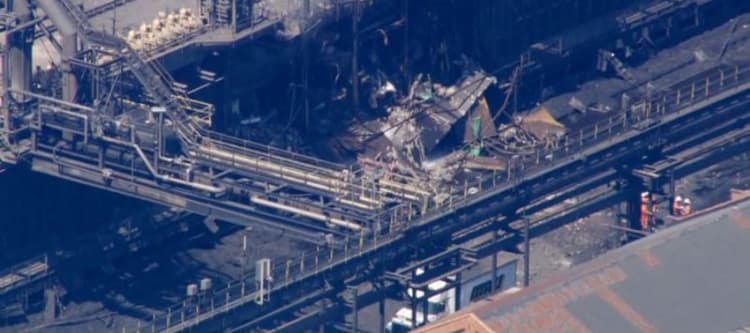Industrial accidents have long-standing consequences for workers, industries, and communities. The recent explosion at a US steel plant has once again highlighted the importance of safety, preparedness, and resilience in heavy industries. While steel production remains a backbone of the American economy, such incidents not only disrupt operations but also raise concerns about workplace safety, environmental damage, and the long-term impact on supply chains.
Immediate Impact of the Explosion
When the explosion occurred, the first concern was the safety of the workers. Emergency services rushed to the scene, ensuring that injured employees received prompt medical treatment. Several workers were reported injured, while others narrowly escaped with minor burns and trauma. The blast also caused structural damage to parts of the facility, forcing the management to halt production temporarily.
The immediate economic impact was evident. Steel production is a high-demand sector, and even a short pause in operations can lead to delays in shipments, unmet orders, and disruptions in industries dependent on steel, such as construction, automotive, and infrastructure development.
Environmental and Community Concerns
Beyond human safety, explosions in heavy industries often bring environmental risks. In this case, there were concerns about toxic fumes, air pollution, and contamination of surrounding areas. Nearby communities reported strong vibrations and noise, leading to temporary evacuations in some localities.
The local economy also faced disruptions. Small businesses that rely on steel plant employees, such as transport services, suppliers, and nearby vendors, felt the shock of sudden inactivity.
Industry-Wide Implications
The explosion has reignited the debate about industrial safety protocols in the US steel sector. Questions arise:
- Were safety inspections adequate?
- Was the machinery outdated or poorly maintained?
- Could preventive measures have stopped the blast?
The steel industry operates with high heat, pressure, and heavy-machinery conditions where even a minor lapse can trigger disasters. The US Occupational Safety and Health Administration (OSHA) is expected to investigate the incident thoroughly, ensuring accountability and recommending stronger safety guidelines.
Global Supply Chain Concerns
The US is one of the world’s major steel producers, and disruptions at a large facility can ripple through global supply chains. Importers and exporters may face delays, prices may temporarily increase, and industries dependent on specialised steel products might experience shortages.
Such accidents highlight the fragility of supply networks and stress the importance of diversification and contingency planning for manufacturers worldwide.
Table: Key Information on the US Steel Plant Explosion
Aspect | Details |
Location | US Steel Plant (specific city not disclosed in initial reports) |
Date of Incident | Recent (Exact date pending confirmation) |
Casualties | Several injuries reported; no confirmed fatalities at the time of reporting |
Cause of Explosion | Under investigation (potential machinery/equipment failure suspected) |
Immediate Impact | Temporary shutdown of plant operations |
Environmental Effect | Air quality concerns, possible release of toxic fumes |
Community Impact | Local businesses and residents affected by vibrations and temporary risks |
Industry Response | OSHA and safety authorities launching investigations |
Moving Forward – Lessons to Learn
The steel industry must treat this tragedy as a wake-up call. Worker safety, regular equipment inspections, and emergency preparedness should remain top priorities. Additionally, companies should invest in modern technology and safety automation to reduce human risk in hazardous environments.
For the community and industry stakeholders, resilience will be key. Transparent communication, compensation for affected workers, and environmental restoration efforts will determine how quickly trust can be rebuilt.
Ultimately, the explosion at the US steel plant underscores a vital truth: industrial growth must go hand in hand with safety and responsibility.